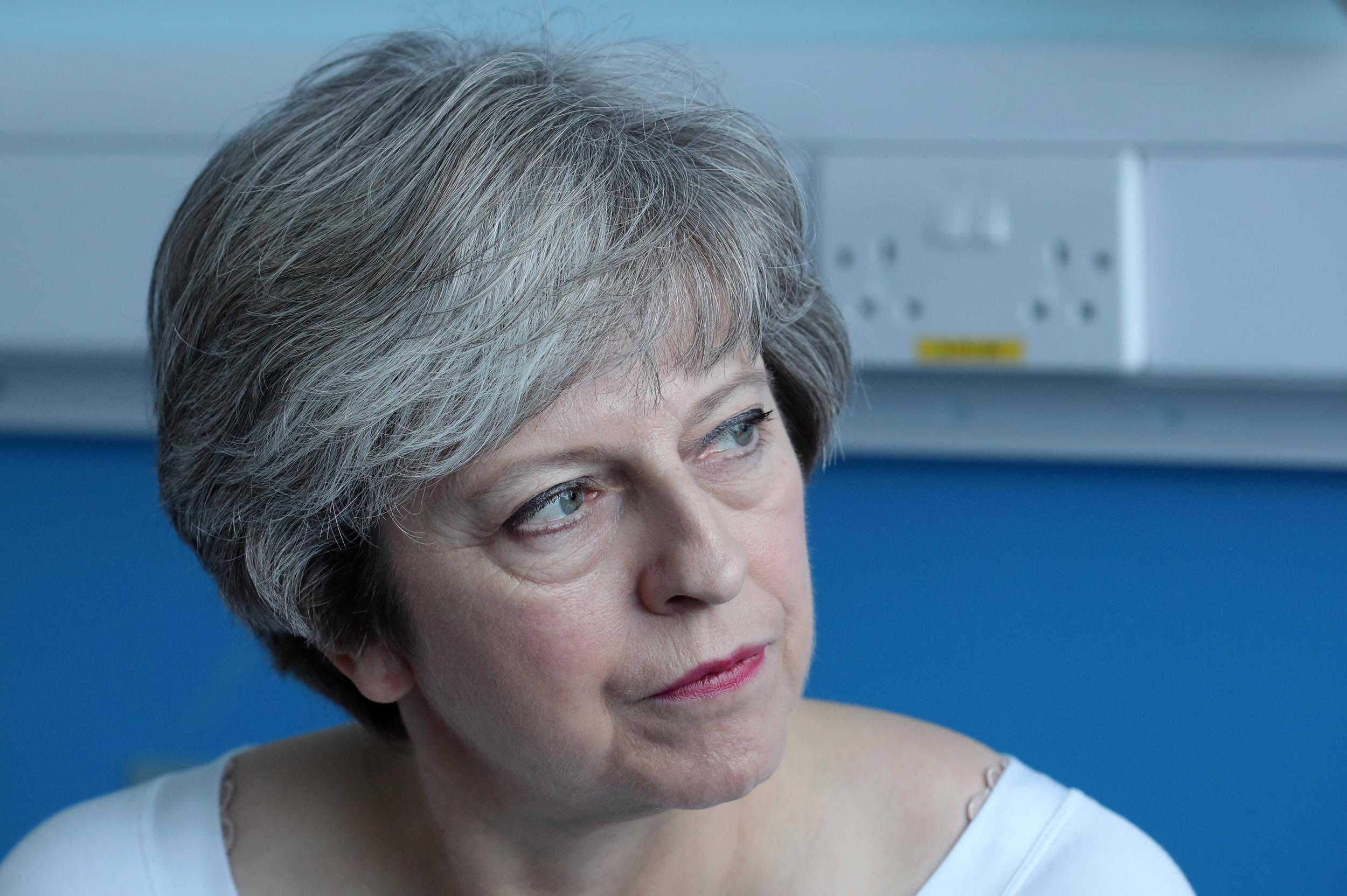Ministers consider further round of Brexit legislation to prevent rebellion over Theresa May's EU withdrawal plans
Exclusive: Plans could include a major new ‘wrap’ piece of legislation at the end of the Brexit process

Ministers are considering a further round of Brexit legislation in a major concession aimed at quelling a Conservative rebellion over Theresa May’s EU withdrawal plans, The Independent can reveal.
Among options being explored are additional bills to deal with specific policy areas, like those already announced on immigration or trade, but also a major piece of legislation enshrining the final withdrawal agreement in British law.
It comes in response to deep concerns among Conservative MPs over sweeping powers being granted to ministers as part of the Brexit process, which allow them to change existing laws without full scrutiny in Parliament.
But the move also brings tricky political problems – Labour will claim it as victory having called for more primary legislation, while Tory Brexiteers will not stand for anything threatening to complicate or delay EU withdrawal.
The Prime Minister’s difficulty in pushing through her existing EU (withdrawal) Bill on a meagre Commons majority was underlined this week when its “committee stage” was delayed due to the sheer number of amendments MPs want to make.
At the heart of most concerns are the “Henry VIII powers” the bill permits, so called because they allowed the despotic monarch to rule by decree.
Ms May’s team hopes allowing more legislation, and the detailed scrutiny that comes with it, will counter claims that her Government will wield the new powers to ditch existing rights for workers, the environment or in other areas.
A minister told The Independent: “Already we have said that in seven key areas – immigration, customs and trade and so on – that you are going to need separate primary legislation.
Brexit: the deciders
Show all 8“So the questions is, should we look again to see if there might be other areas where primary legislation would be needed?
“If so, let’s identify them now so that we give further reassurance to colleagues that, in fact, we are resorting wherever appropriate to primary legislation, rather than wanting to have a power grab in an unlimited way, to use these powers to do whatever we like – it’s that thought process that is going on, so that when we get to committees stage we are able to say we have looked at the full context of this.”
So far the Government has passed an Act triggering the Article 50 Brexit process, has committed to the EU (withdrawal) Bill, bringing all EU laws on to the British statute book, as well as seven further pieces of legislation on specific policy areas, and has also promised to give Parliament a straight vote on whether to accept any deal Ms May secures.
But despite previously resisting further laws, the minister said the PM’s team are now looking at going further, and tying off the Brexit process with a catch-all piece of legislation that would recognise the final withdrawal agreement in British statute.
“The whole process itself could be looked at, to see if you would need a whole further piece of legislation to bring in the withdrawal agreement,” the minister said.
“The Government has already promised a resolution of both Houses… so the question might be, ‘is there anything more that we need to be doing in terms of primary legislation at that end [of the process]?’.
“We haven’t yet committed to primary legislation to bring in the agreement, but it is going to be raised and so these are the questions we have to deal with now, the questions that are concerning ministers as we get to committee stage.”
The minister argued that the move to push back the committee stage of the EU (withdrawal) Bill had allowed Ms May’s team to properly consider amendments, that it is a sign of “maturity”.
The promise of further legislation was tentatively welcomed by some Tory backbenchers, like ex-minister Nicky Morgan who has been pushing for MPs to have more say over Brexit.
She said: “If this means that the Government recognises just how critical Parliament is in getting all this stuff through and having a final say, and this is a step forward to taking back control, and control coming back to a sovereign Parliament, then that sounds like a very positive step to me as a backbench MP.”

Former attorney general Dominic Grieve has been at the forefront of the drive from the Tory benches to rewrite the EU (withdrawal) Bill, with one of his amendments calling for a “wrap” piece of legislation to approve the final deal.
The QC said that in his legal opinion, the Government was always going to be bound to recognise the final withdrawal deal in legislation, and he welcomed it if ministers are now “accepting reality”.
With his amendment attracting the support of enough MPs to potentially defeat the Government, he said he is “very happy to listen” to the views of ministers and discuss his suggested changes with them.
He added: “My personal view has always been, I don’t see how we are going to finally leave the EU without some form of primary wrap legislation at the end, to pull all the strands together.
“I am convinced that on an issue like this, we are going to come to some sort of sensible and satisfactory compromise, either a compromise or they are going to agree broadly speaking with what I’m suggesting.”
Mr Grieve also said he suspected it would be difficult to pass the wrap legislation before March 2019, with the process potentially going into the Brexit “implementation period” up to 2021/22, something Leave-backing Tories would fight.
The ex-minister added: “They may complain, but having embarked on this revolutionary upheaval, there is a bit of me that says you should have thought about that earlier. I’ve been saying to them since the referendum campaign, ‘have you really any idea what you are taking on?’.”
Brexit-backing MP Andrew Bridgen said he would be happy to see Parliament passing further legislation, but that it would be unacceptable for the process to drag beyond March 2019.
“If Parliament has to sit for more weeks over the next 18 months, fine. I’d rather do it through reduced Easter breaks, and there are other weeks we could sit,” he said.
“We could sit for a longer period through the summer.”
Shadow Brexit Secretary Keir Starmer claimed the move was evidence of what he called the Government’s “chaotic approach to the Brexit process”.
He said: “Theresa May was warned months ago that the EU (withdrawal) Bill was fundamentally flawed and a blatant power grab by ministers.
“Labour has always said that the Government would need to change their approach and that separate primary legislation would be necessary to implement any withdrawal agreement.
“If the Government is planning on introducing further legislation to deliver Brexit then they should say now and ensure Parliament has sufficient time to ensure it is fit for purpose.”
Subscribe to Independent Premium to bookmark this article
Want to bookmark your favourite articles and stories to read or reference later? Start your Independent Premium subscription today.









Join our commenting forum
Join thought-provoking conversations, follow other Independent readers and see their replies
Comments